Reorganizing the health system to better serve the people
Pursuant to the direction in Document No. 59-CV/BCĐ dated September 12, 2025 of the Central Steering Committee, the Government Steering Committee requests ministries, branches and localities to reorganize public service units according to each industry and field; send the plan to the Ministry of Home Affairs for synthesis before September 25, 2025.
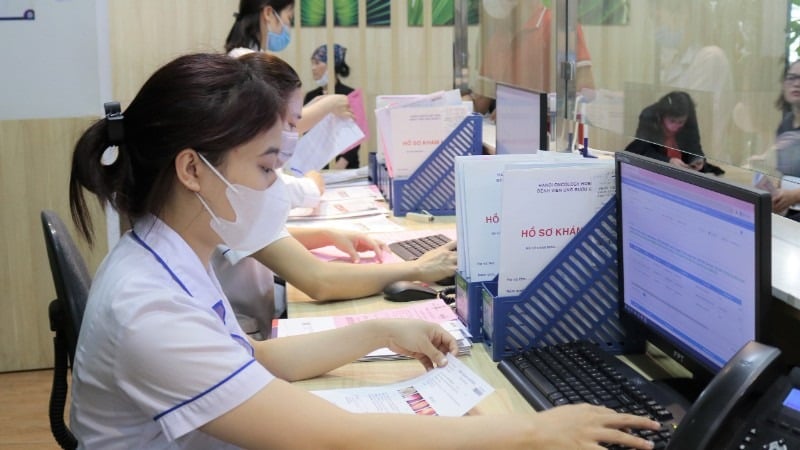 |
| Illustration photo. |
In the health sector, the plan emphasizes the continued arrangement and transfer of a number of hospitals under the Ministry of Health to local management, while retaining a number of specialized, high-tech end-line hospitals for direct management by the Ministry of Health. These hospitals will take on the role of professional guidance, training high-quality human resources, scientific research, technology transfer, disease prevention and response to medical emergencies.
Existing provincial public hospitals will be maintained, while socialization will be encouraged in qualified localities. Each province and city must have at least one specialized hospital and a geriatric hospital or geriatric department in a general hospital.
The preventive health system will be modernized and have the capacity to monitor, warn early and control epidemics effectively. The Expanded Immunization Program will also be strengthened in both scope and target.
At the grassroots level, commune, ward and special zone health stations will be re-established as public service units under the commune-level People's Committees to meet the basic medical examination and treatment needs and primary health care for the people. District-level health centers and general hospitals will be transferred to the Department of Health and reorganized according to inter-ward and inter-commune areas.
The Steering Committee requested ministries, ministerial-level agencies and People's Committees of provinces and centrally-run cities to proactively develop a reorganization plan, submit it to the Standing Committee of the Government Party Committee for consideration and decision, and report to the Ministry of Home Affairs before the prescribed deadline to ensure unity and effectiveness in reorganizing the system of public service units in the entire health sector.
The Ministry of Health proposes to decentralize approval of standards and specialized equipment as medical equipment.
The Ministry of Health is drafting a Circular regulating the decentralization of authority to decide on approval of standards and norms for the use of specialized machinery and equipment, which are medical equipment, for agencies and units under the Ministry's management.
Accordingly, the Ministry of Health will approve standards and usage norms for specific specialized machinery and equipment (specialized medical equipment), and at the same time decentralize approval authority to units to proactively decide on standards and usage norms for other specialized equipment (not belonging to the group of special specialized medical equipment).
The draft Circular is developed based on the provisions of the Law on Government Organization and the Law on Promulgation of Legal Documents. The scope of application is agencies and public service units under the Ministry of Health and related to the authority to decide on approval of standards and norms for the use of specialized machinery and equipment that are medical equipment of the Ministry of Health.
Regarding the content of decentralization of authority, the draft stipulates decentralization to the Management Board (if the unit has a Management Board), the head of the unit that self-insures regular expenses, the unit that partially self-insures regular expenses and the unit whose regular expenses are guaranteed by the State under the Ministry of Health, to have the right to decide and approve the standards and norms for the use of specialized machinery and equipment that are medical equipment at their unit.
Currently, the draft Circular is being posted to collect public comments on the Ministry of Health's Electronic Information Portal.
Turning AI into a “smart partner” for doctors
Recently, the Post Office Hospital organized a seminar on “Digital transformation solutions in medical examination and treatment and health care” and officially launched a pilot system for applying AI in supporting image diagnosis. This event is also an opportunity to share experiences in implementing digital technology solutions in the medical field according to the direction and guidance of the Ministry of Health.
Mr. Nguyen Truong Nam, Deputy Director of the National Center for Health Information (Ministry of Health) emphasized that digital transformation in healthcare is no longer an option, but an inevitable trend. The effectiveness that digital transformation brings has been clearly demonstrated in improving the quality of patient care, optimizing the operations of healthcare facilities, and contributing to the modernization of the entire industry.
The Ministry of Health always encourages and guides medical facilities to promote the application of advanced technologies, especially AI, to improve the efficiency of medical examination and treatment and protect people's health. Among them, the Post Office Hospital is one of the pioneers in deploying digital technology, especially the application of AI in image diagnosis, helping to optimize working time and improve accuracy in diagnosis.
Mr. Nguyen Truong Nam affirmed that AI does not replace doctors, but is a useful support tool, helping doctors make decisions more quickly and accurately.
Thereby, contributing to improving the quality of treatment and increasing patient satisfaction. With close coordination between technology and expertise, along with the right direction from the Ministry of Health, the health sector will have solid steps forward in the journey of digital transformation for public health."
Associate Professor, Doctor Tran Hung Manh, Director of the Post Office Hospital, said that from July 1, 2024, the Post Office Hospital is one of the first 100 hospitals recognized by the Ministry of Health to deploy electronic medical records to completely replace paper records. This is an important milestone in the digital transformation process, opening up the possibility of applying modern technologies such as AI, Big Data, cloud computing, etc. to medical examination and treatment activities.
The hospital is currently working closely with VNPT-IT to build a smart hospital model, aiming to provide modern, safe, friendly and patient-centered medical services.
According to the hospital director, in modern medicine, diagnostic imaging is a key field in most clinical specialties. Techniques such as X-ray, CT, MRI, ultrasound, etc. have become indispensable tools. However, the increasing volume of image data and the need for fast and accurate diagnosis have put considerable pressure on the medical team.
The emergence and rapid development of AI has brought about breakthrough solutions, helping medical staff process and analyze image data at outstanding speeds, detect abnormalities that are difficult to detect with the naked eye, support clinical decisions, reduce errors and optimize working time, thereby improving the quality of treatment and benefits for patients.
At the seminar, experts updated new trends in AI applications in imaging diagnosis, shared practical experiences in implementation, analyzed opportunities, challenges and barriers when integrating AI into the medical examination and treatment process. From there, aiming to turn AI into a useful tool, supporting doctors, accompanying patients and contributing to the development of a sustainable health system.
Resolution No. 72-NQ/TW of the Politburo also emphasized the orientation of promoting the application of artificial intelligence (AI), blockchain, big data, and Internet of Things (IoT) in the healthcare sector to enhance transparency and efficiency in the provision and use of healthcare services.
Dr. Pham Huy Hoang, a technology expert, said that along with exploiting data from electronic medical records, AI, Big Data and IoMT technologies will help optimize the medical examination and treatment process, improve the quality of patient service, and create a foundation for the development of smart healthcare.
This is also an important step in connecting and sharing medical data nationwide, towards a comprehensive, personalized health care system for each citizen.
Source: https://baodautu.vn/tin-moi-y-te-ngay-259-sap-xep-he-thong-y-te-de-phuc-vu-nguoi-dan-tot-hon-d393475.html



![[Photo] Students of Binh Minh Primary School enjoy the full moon festival, receiving the joys of childhood](https://vphoto.vietnam.vn/thumb/1200x675/vietnam/resource/IMAGE/2025/10/3/8cf8abef22fe4471be400a818912cb85)

![[Photo] Prime Minister Pham Minh Chinh chairs meeting to deploy overcoming consequences of storm No. 10](https://vphoto.vietnam.vn/thumb/1200x675/vietnam/resource/IMAGE/2025/10/3/544f420dcc844463898fcbef46247d16)




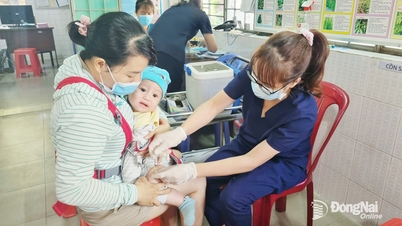

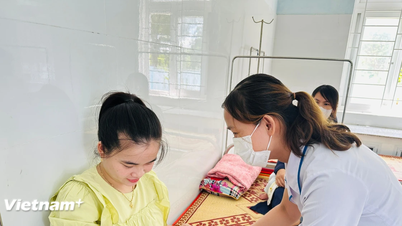







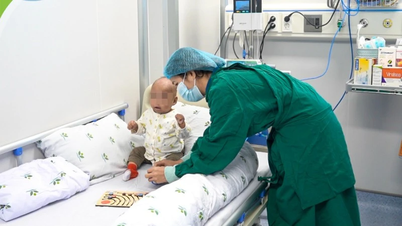
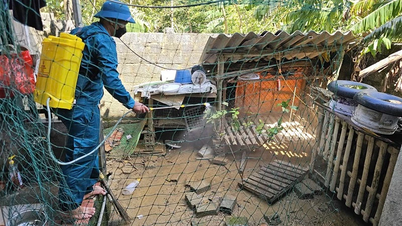
















































































Comment (0)